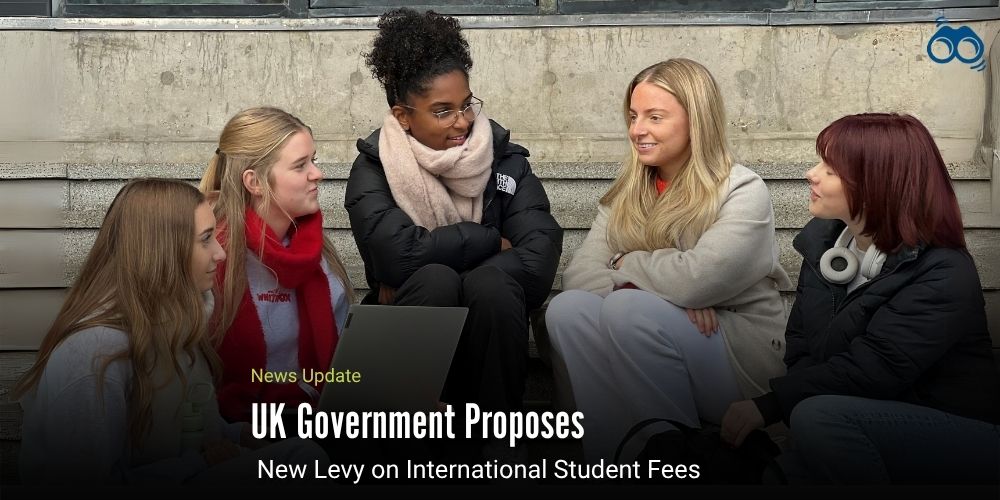Declining Foreign Student Enrollment Sparks Widespread Concern in the Higher Education Sector
Universities Face Financial Strain as Stricter Visa Rules Impact International Admissions
International students play a crucial role in sustaining the UK’s higher education sector, contributing approximately £12 billion annually. However, the British government has proposed a 6 per cent levy on this revenue, as outlined in a recently published white paper. This proposal has raised concerns among universities, particularly as they are already struggling with financial difficulties due to a decline in overseas applications and tightened student visa policies. Given that foreign students are vital to the financial stability of these institutions, stakeholders are closely assessing the potential consequences of such a levy on both universities and the UK’s global academic standing.
Furthermore, the proposal is reportedly part of Sir Keir Starmer’s broader strategy to reduce net migration. It has been indicated that the funds raised through the levy would be redirected towards the higher education and skills sector to enhance domestic workforce training and decrease dependence on international workers. In addition to this, the white paper includes modifications to post-study visa regulations, reducing the permitted stay for foreign graduates after their studies from two years to 18 months. Although graduates are not required to work during this period, they must secure graduate-level employment to remain in the UK beyond this timeframe.
Moreover, universities will be subject to stricter recruitment rules to ensure lower dropout rates and better attendance. Those that fail to meet the new standards could face limitations on their ability to admit foreign students or even lose sponsorship rights. These measures come at a time when international applications are already decreasing, partly due to prior restrictions on students bringing dependents.
A Universities UK representative emphasised the mounting financial pressures facing institutions, citing stagnant tuition fees, insufficient research funding, and a significant decline in international student enrollment. Consequently, they urged the government to carefully evaluate the potential ramifications of the levy on universities and the UK’s attractiveness as a higher education destination. Similarly, the leader of the University and College Union expressed strong opposition to these policies, likening them to a familiar political stance. They warned that discouraging international students amidst existing financial strain could result in severe financial hardship or even closure for some universities.
Additionally, a spokesperson criticised the Home Office’s restrictions, arguing that such limitations were detrimental to economic growth and local communities. They cautioned that failing to address these concerns could negatively impact universities, the UK, and its global reputation. Meanwhile, the director of the Higher Education Policy Institute condemned the proposed levy, describing it as a tax on a thriving export sector. They also voiced concerns that some of the funds generated may be redirected by the Treasury, as had been the case with previous financial measures.
Furthermore, reports highlighted that the number of foreign students, who often pay up to £60,000 annually in tuition fees, had more than doubled over the past five years. The proportion of students transitioning to other visas upon completing their studies had risen from 20 per cent in 2020 to over half, thereby contributing to increased net migration. The white paper also pointed to evidence of misuse within the UK’s student visa system, revealing that approximately 16,000 individuals, representing half of all asylum claims from visa holders, had sought asylum. It suggested that this issue was driven both by international applicants exploiting the system and by educational institutions failing to uphold their integrity.
Further concerns were raised regarding the sharp increase in foreign students enrolling in master’s programmes, with numbers surging by 150 per cent to 315,000 between 2020 and 2022. The most significant rise in student visa approvals was seen at lower-ranked universities, with institutions ranked in the bottom 500 experiencing a 49 per cent increase, whereas top 100 universities recorded a 7 per cent decline.
To address these issues, universities would be required to ensure that at least 90 per cent of international students complete their studies and 95 per cent attend their classes. Additionally, a red-amber-green rating system would be introduced to assess universities’ compliance, with institutions falling short expected to implement corrective measures and potentially face restrictions on international student admissions. While the government's proposed measures aim to regulate migration and improve domestic workforce training, they have sparked widespread concern among universities, which fear that such policies could undermine the financial sustainability and global competitiveness of the UK’s higher education sector.
Editor’s Note:
The UK government's proposed changes to international student policy represent a significant shift with far-reaching implications for the higher education sector. Central to the proposals is a 6 per cent levy on tuition income from overseas students, part of a broader strategy aimed at reducing net migration and investing in domestic workforce development. Additional measures include stricter post-study visa rules, attendance and completion rate requirements, and a compliance rating system for universities. Education leaders have raised concerns that the proposed reforms could further strain financially vulnerable institutions. With international students contributing £12 billion annually, stakeholders warn that the changes may harm the UK’s global academic appeal and reputation. Introduced amid falling overseas applications and past visa restrictions, the government argues the measures are needed to protect the visa system and support domestic workforce development. However, many fear the reforms could jeopardise a key UK export sector.
Skoobuzz believes that as the policy debate unfolds, it is essential for decision-makers to balance national priorities with the long-term sustainability and global competitiveness of the UK’s higher education sector.














0 Comments (Please Login To Continue)